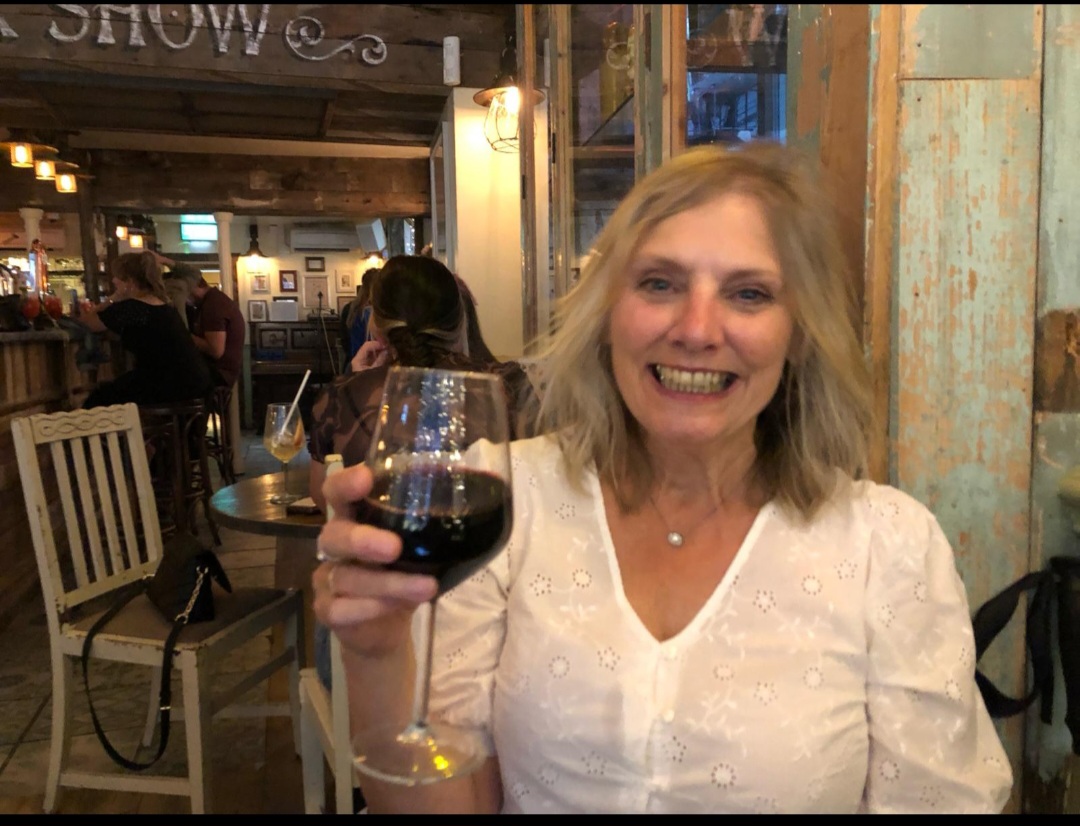Anti-LGi1 Autoimmune Encephalitis Lived Experience — Gill’s Story

Hannah, Gill’s daughter, talks about her mum’s lived experience of anti-LGi1 autoimmune encephalitis
Before encephalitis
Before encephalitis, our mum was a very active person. She enjoyed walking, swimming, pilates—even the occasional body combat class at the local gym. She volunteered in the charity shop and worked in libraries in the area following her retirement, which she loved!
Initial symptoms of encephalitis
In June 2023, mum began complaining of dizziness/light-headedness that would wash over her throughout the day. During these spells, Mum was unable to speak, and she described it as a scared feeling in the pit of her stomach.
She went to see her GP, who advised her to start exercises for BPPV (Vertigo). The dizziness symptoms were still present but were increasing in frequency. Mum made another appointment with a different GP who referred her for Cardiac Investigation. These investigations came back clear and of no cause for concern.
Mum seemed stressed, and her temper had shortened considerably, which was out of character. Looking back, there were some signs of memory loss; for example, misplacing her house keys, or leaving her phone at home.
During August, mum’s dizziness seemed to morph into a slight spasm/stiffness (faciobrachial dystonic seizures) in her right hand. She was experiencing memory loss, which we noticed was getting worse. At night, she wasn’t sleeping and would have major visual disturbances.
Progression of symptoms
At the beginning of September, we called 111, who made an emergency GP appointment for the next day. During the appointment, her GP witnessed one of the seizures, which by this point were easy to spot with a vacant expression on her face. She was referred for an urgent MRI, which would be a wait for up to 3 weeks, so mum was prescribed anxiety medication.
The following day, the seizures were now 6 minutes apart & knocking her from her feet, so she was falling or stumbling. She became disorientated and had difficulty speaking. Her sentences were all over the place & we struggled to understand what she was trying to tell us. On some occasions during her seizures, she was verbal and would say strange things and at the odd time speak French or another language.
Road to diagnosis
Family took her to accident & emergency and she was admitted with query TIA/Stroke. She had MRI’s, CT’s and an EEG, but only the EEG came back with abnormalities. Her sodium levels were low so she was on a 1-litre fluid restriction for the duration of her stay in hospital.
She was discharged after 10 days with epileptic medication and she required 24-hour care. We had a Carephone installed and equipment to aid her around the house. Unfortunately, she was still falling and still experiencing the vacant episodes. Mum had started cooking at all hours through the night and was forgetting big events from the past.
At the beginning of October, she was admitted into hospital again. The epileptic medication was increased and she had a Deprivation of Liberty put in place. She had more falls within the hospital which eventually led to her requiring one-to-one care. Again, her sodium levels were dropping and she was put onto another 1-litre fluid restriction.
Misdiagnosis
On the 31st of October, we were told that it was early onset dementia and she was referred to the Elderly Care Team. We were then called in for a meeting to discuss discharge into 24-hour care. This was a hard concept for us, as she had gone from being fully independent to needing 24-hour care & some days forgetting who we were, all within 4 months. We felt uncomfortable questioning a medical profession we knew nothing about, which added to the frustration. Not only this, but we had to navigate our mum, who we knew so well, as another version of herself, who we weren’t familiar with.
Diagnosis of encephalitis
On the 15th of November, mum was seen by a different neurologist, he suspected anti-LGi1 autoimmune encephalitis (also called LGI1 autoimmune encephalitis) and he requested bloods, spinal fluid and a new MRI. The MRI came back quickly and it showed changes in her brain associated with encephalitis, so treatment started straight away.
We asked about the possibility of mum going to a rehabilitation centre thanks to Encephalitis International—they sent us many helpful guides about the illness & recovery, and they were available over the phone whenever we needed support or guidance.
Recovery
Mum was transferred to neurorehabilitation at the end of January this year, she can now hold a conversation, is becoming more aware of her surroundings and understands that she has brain inflammation.
Our mum is so much more emotional than she was. She has a very short temper and anxiety, and she is sensitive to noises and smells. Short-term memory has also been impacted.
Mum is doing well in rehabilitation and we hope she continues to make progress. There is a long journey ahead but we still have our mum, and for that, we are so unbelievably grateful.
The future
We had never heard of encephalitis before mum was diagnosed, and neither had any of our friends or relatives. We are sharing mum’s LGI1 lived experience to help spread awareness. As a result, we hope medical professionals are more familiar with this illness so people can access treatment sooner, which is vital for recovery. We hope that one day, mum can share her lived experience of LGI1 autoimmune encephalitis in her own words.
Get help
Our support team are available from 9am to 5pm (GMT), Monday to Thursday, and 9am to 4.30pm (GMT) on Fridays.
To get in touch, simply call +44(0)1653 699599.
Contact our helpline
